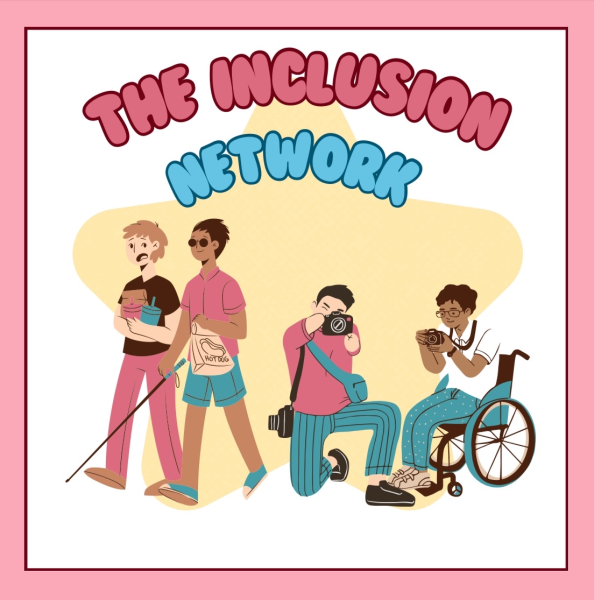Are Online Classes the Future of Education?
Is online learning going to be the future of how education works?
Last year, during the COVID-19 pandemic, there was a massive quarantine that forced people to stay in their homes. As part of that quarantine, many children and students had to switch to online classes. Now the quarantine is long over and many students are going back to in-person classes, of course, this does raise a question: Are things going to be fully back to normal in terms of classes or is online learning the future of education?
Online learning has been on the rise for a while now. As the website, educations.com published in an article,
“The concept of traditional education has changed radically within the last couple of years. Being physically present in a classroom isn’t the only learning option anymore — not with the rise of the internet and new technologies, at least. Nowadays, you have access to a quality education whenever and wherever you want, as long as you have access to a computer. We are now entering a new era — the revolution of online education.”
Technology is improving all the time, leading to more and more reliance on said technology. Much like how many people can pay their taxes online, read books and stories online, or apply for classes online, many people have, still do, and most likely will take classes online.
There are many advantages to online learning. In many cases, online classes allow for both the teacher and student to work at their own pace. Having an online schedule can end up with a better balance of work and studies, studying online can even lead to developing better skills in time management. Another advantage of online learning is that it’s accessible. As long as you have an Internet connection you can study, tutor, receiving tutoring, or do homework from pretty much everywhere. Online classes also allow for a more customized learning experience, as the article from educations.com said,
“There’s often access to very diverse material such as videos, photos, and eBooks online as well, and tutors can also integrate other formats like forums or discussions to improve their lessons. And this extra content is available at any moment from anywhere, which will offer you a more dynamic and tailor-made education.”
There’s also the fact that online learning is more cost-effective than traditional learning. This is due to the lessening of costs such as travel, meals, school supplies, etc. Online learning has several upsides that can possibly lead to it becoming more popular and eventually becoming the go-to option for education. Online learning also has the benefit of letting an unlimited number of students be able to enroll. As Nabeel Ahmad said for The Good Men Project website,
“Many more students can be enrolled in an online class than in a live class. Though the teacher may still have to incorporate live online lessons as part of the curriculum requirements to their students who may be spread across the globe, most of the lessons are automated allowing the students to self-learn using a screen.
The work of the teacher is therefore reduced to preparing the lesson plans and placing them online and marking and checking the progress of the students.”
Online education has many advantages, the ones listed are only a few good things to come from it. These advantages are part of why many think online learning will be the future of education.
Despite all that, however, there are still plenty of disadvantages to online learning that could hold it back from being the future of education. The most well-known disadvantage is the fact that allowing a student to work at their own pace is a double-edged sword. For students who have troubles when it comes to learning or time management, it can lead to them struggling a lot. Another disadvantage is troubles with technology and human errors. As Adiyta Shukla said in an article for Cognition Today,
“Even though newer students are likely to be more tech-savvy than the average student from 1990, the number of small technologies and dependencies like the internet, apps, batteries, cables, logins, earphones, etc. create an opportunity for something to go wrong. Students may pay lesser attention to these potential points of errors due to domestic demands, distractions, a lack of boundaries between fun time & learning time, etc. Not getting up & preparing exclusively for school or college could lead to neglecting parts of that preparation which could potentially bring one’s attention to human errors.”
While online learning, in general, is less expensive than in-person learning, that doesn’t mean that the transition to online learning is cheap. Sometimes schools, students, or parents aren’t in a very good financial position to afford the technology needed for online learning. Most students have computers, phones, or tablets of their own to do this but that’s not always the case. Also, staring at a computer or phone screen all day while doing school isn’t the best for your eyes. One of the biggest disadvantages that students have with online learning as opposed to in-person learning is the fact that not every student learns the same way. As Rachel Wise said in an article for the Education and Behavior website,
“Many students are in need of a hands-on/interactive approach to learning. Not all students have access to the same materials. We need to brainstorm about what materials will provide the best hands-on experience and how hands-on activities can be implemented on and off-screen. We need to think about what materials students may already have and what we may need to provide.”
There are a lot of students that need a more hands-on approach, just seeing something or hearing about something isn’t always enough.
There are many disadvantages to online learning. However, that has hardly stopped it,
“Regardless of these concerns, online education has made great strides in recent years. For starters, more and more institutions of higher learning have introduced or reinforced their online education platforms, the main considerations being cost reduction for students and recruitment expansion in face of rising competition. As a result, online education has become an increasingly important part of tertiary education, with colleges and universities using world-famous faculty members and professional support teams to promote online courses”
said Harvard University MA candidate, Jiyuan Yu, and Columbia University MED candidate, Zi Hu, in a 2016 article talking about the future of online education. Most universities give students options for online classes, even Shawnee has the option of taking only online classes. In-person classes aren’t going away anytime soon, several students are far more comfortable with working in-person than online. However, many still push for online learning as an alternative or at least an option for students due to the advantages listed earlier. The surge in online classes due to the COVID-19 quarantine helped greatly with the overall view that it will be the future of education.
Online education has grown more and more as technology progresses forward. While the classic brick and mortar, in-person style of education will not be going away anytime soon, many people recognize the benefits of online education and others theorize that it will be the future of education. Not that in-person classes will vanish altogether, given all the disadvantages that can happen with online classes, just that online might end being the go-to option for education in the future. While there is no real way to accurately predict how the future is going to go, with technology continuing to progress and us integrating technology into our lives more and more, it’s safe to say that online education is here to stay and is going to keep growing in popularity.

Tyler Leach is a 20-year-old from Ironton, Ohio. This is his second year at Shawnee State University, he is going for a major in English/Communications...





